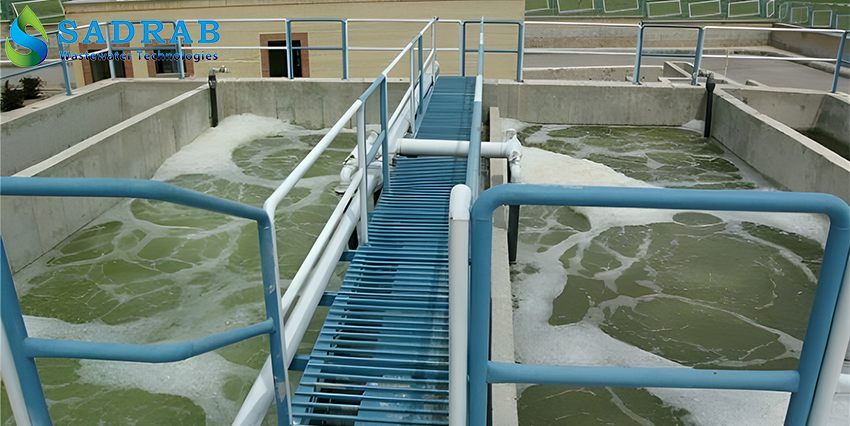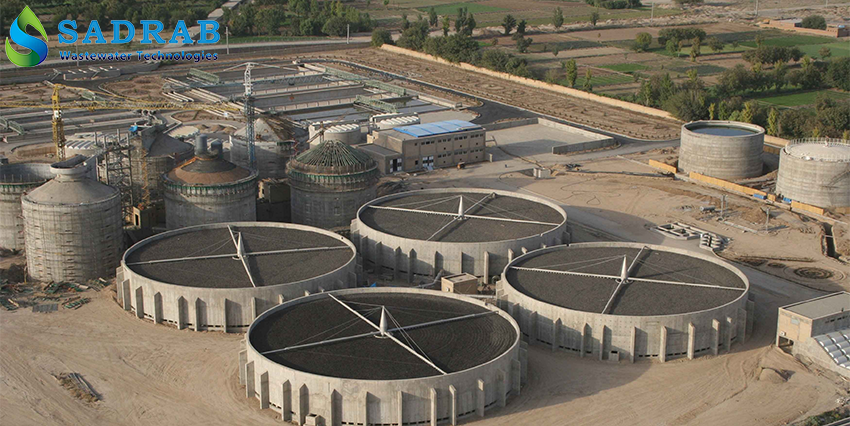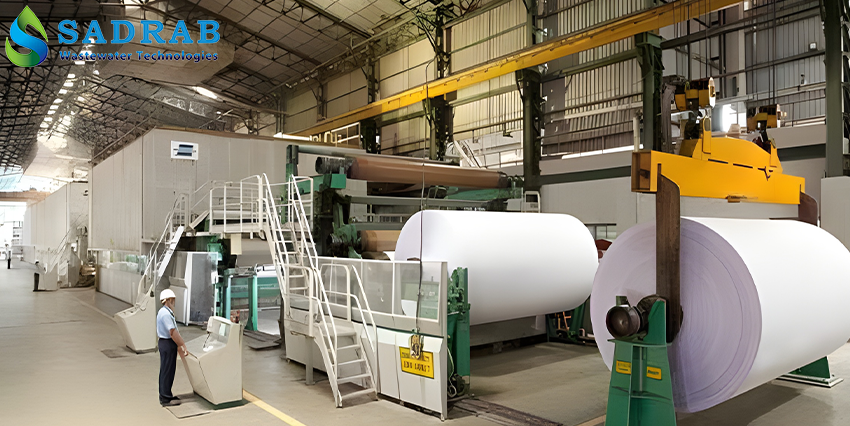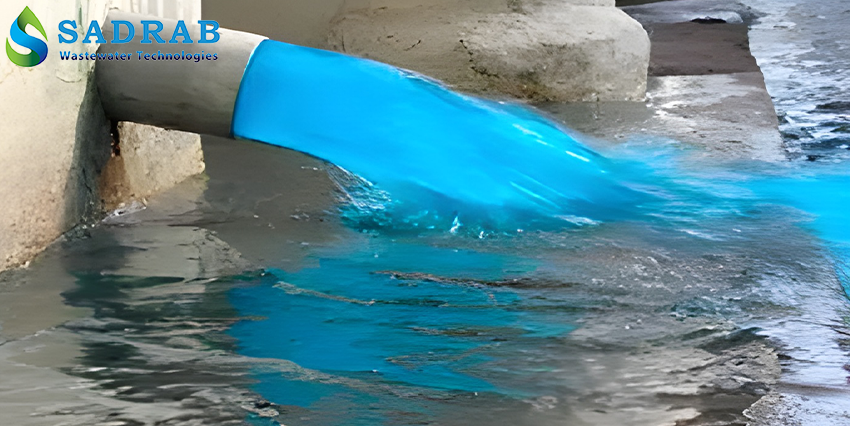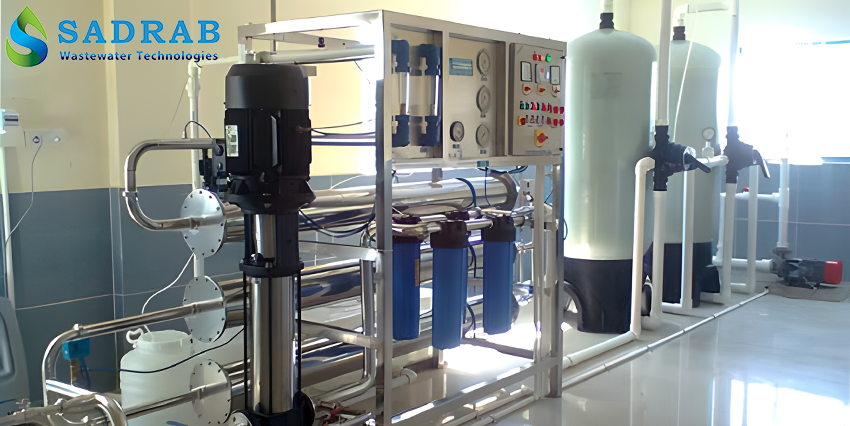Design and Implementation of Wastewater Treatment Plants for Meat Processing Industries

Features of the Design and Implementation of Wastewater Treatment Plants for Meat Processing Industries:
- Ability to effectively remove fats and suspended oils in the effluent
- Significant reduction of BOD and COD to prevent surface water pollution
- Advanced biological processes for the decomposition of organic matter and proteins
- Quick installation and startup with applicability in small to large units
- Optimized energy consumption and reduced operational costs
- Corrosion-resistant structure suitable for harsh environmental conditions
- Lower sludge production and easy sludge management
- Possibility of recycling treated water for non-potable uses within the facility

Specialized support and consulting services

Customized solutions tailored for clients

Guaranteed quality and performance of products

Expertise in wastewater treatment technologies
Additional Details
Professional Solutions for Meat Processing Wastewater Treatment: Review and Analysis
The meat processing industry, due to generating a large volume of wastewater with complex contaminants, requires effective solutions for treating meat processing wastewater. Managing wastewater from the meat industry not only helps comply with environmental standards but also protects water resources. In this article, we conduct a specialized review of various aspects of meat industry wastewater treatment and analyze solutions such as using meat wastewater treatment devices and packaged wastewater treatment systems for meat industries.
Meat Processing Wastewater Treatment: Challenges and Importance
Treating wastewater from meat processing is a complex process due to the presence of organic matter, fats, and proteins in the industry’s effluent. This wastewater typically has high BOD (Biochemical Oxygen Demand) and COD (Chemical Oxygen Demand), which, if not properly treated, can lead to pollution of surface water bodies. Companies operating in the meat processing sector must utilize appropriate wastewater treatment methods to comply with legal regulations and reduce environmental costs.
One effective solution is the use of specialized meat wastewater treatment systems that remove contaminants and improve effluent quality. This process not only supports environmental sustainability but also enables water recycling within industrial processes.
You Might Find This Interesting: What is a Cooling Tower?
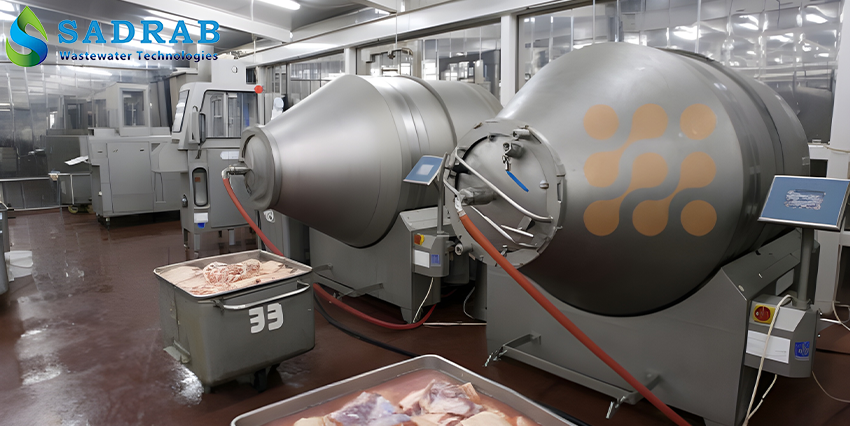
Meat Industry Wastewater Treatment: Modern Approaches
Treating wastewater from the meat industry requires approaches capable of handling the complex composition of this effluent. This wastewater often contains high levels of nitrogen and phosphorus, necessitating advanced processes such as biological treatment of meat wastewater. This method uses microorganisms to break down organic materials and minimize pollution.
Using packaged wastewater treatment systems for the meat industry is a popular option in this field. These packages are pre-fabricated and easy to install, making them highly suitable for smaller meat processing units. By selecting appropriate methods, meat industry wastewater treatment can become an economical and efficient process.
Meat Industry Wastewater: Characteristics and Challenges
Wastewater from the meat industry has specific characteristics due to activities such as meat processing and washing. This wastewater typically contains suspended solids, oils, and grease, whose removal requires specialized equipment. Without proper management of meat industry wastewater, these pollutants can harm the environment or cause additional costs for companies.
To address this issue, wastewater treatment methods for the meat industry such as aerobic process and anaerobic processes are employed. These methods reduce the pollution load and enable safe disposal or reuse of meat industry wastewater. Using specialized meat wastewater treatment systems can also improve effluent quality and reduce environmental impacts.
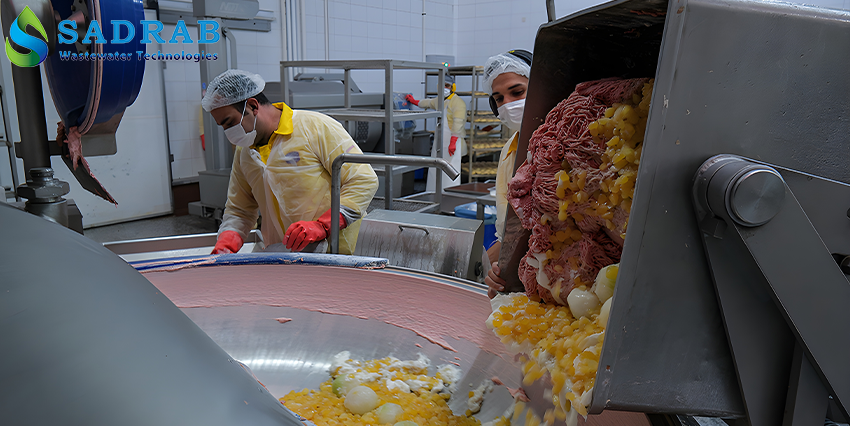
The Role of Water Treatment in Wastewater Management for the Meat Industry
In many meat processing units, wastewater treatment is an inseparable part of the overall industrial water treatment process. The wastewater produced in these industries contains high amounts of fats, proteins, and biological contaminants that, without effective water and wastewater treatment systems, can lead to pollution of water resources. The use of modern water treatment technologies, such as combined biological and physical systems, plays a crucial role in reducing pollution load and protecting the environment. Sadrab Water Treatment, as a specialized solution for the meat industry, utilizes advanced equipment to optimize water resource consumption and significantly improve effluent quality.
Conclusion
Choosing the best solution for treating wastewater from meat products, meat wastewater treatment, and effluent treatment in the meat industry is of great importance. By using meat industry wastewater treatment methods and advanced equipment such as meat wastewater treatment devices and meat industry wastewater treatment packages, sustainable and cost-effective solutions can be achieved. Whether your goal is to reduce pollution from meat industry wastewater or to improve treatment processes, selecting the right technology is the key to success.
For free consultation and professional solutions in meat industry wastewater treatment, contact Sadrab Company at: 09119191911. We are here to help you implement the best wastewater management systems for the meat industry.
FAQ
Yes, advanced treatment systems include fat separation stages and biological treatment processes that effectively remove fats and oils.
These packages are optimized for low energy consumption, and their maintenance costs are significantly lower compared to traditional methods.
Yes, the quality of the treated wastewater is sufficient for reuse in industrial applications and cleaning processes.
Depending on the capacity, installation and commissioning typically take less than a few weeks and the system is quickly ready for operation.




